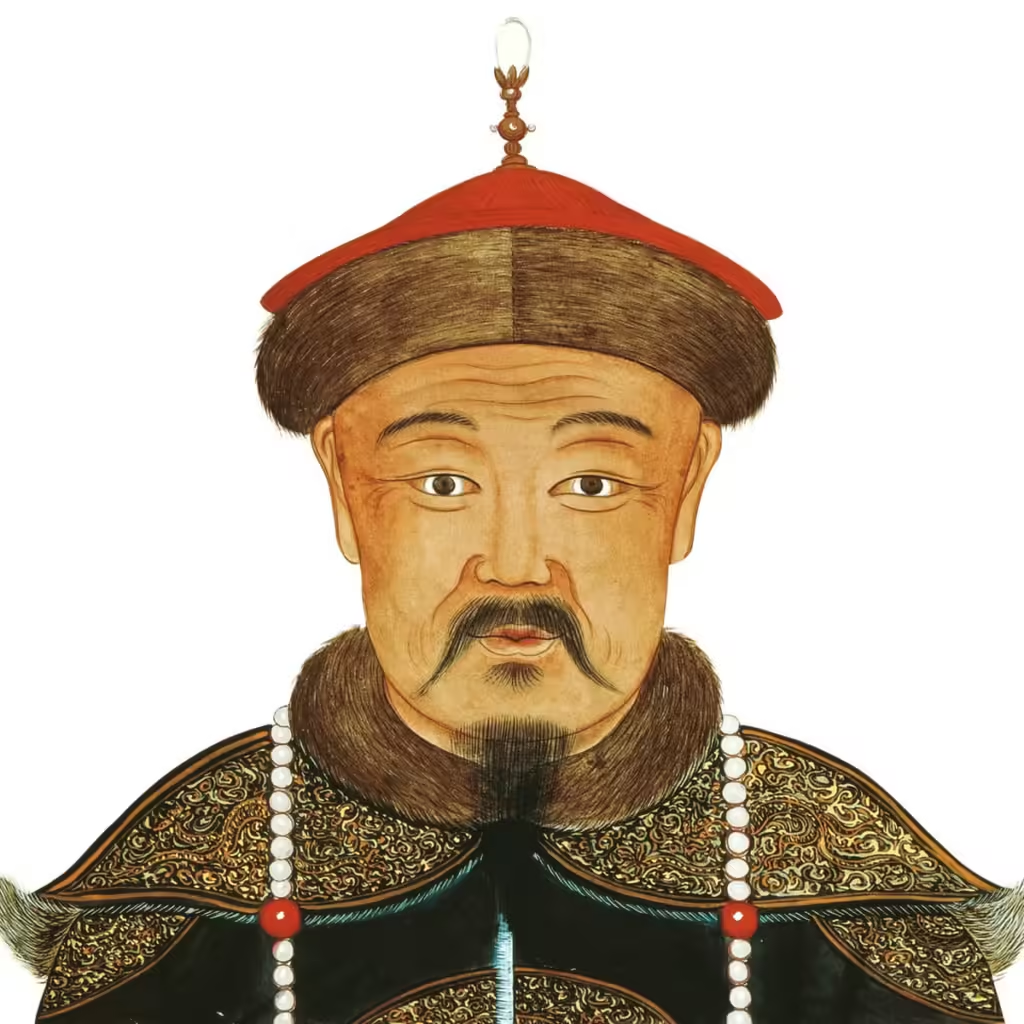
Table of Contents
Who Was Kublai Khan?
Kublai Khan, who ascended to power in 1260, became the ruler of the expansive Mongol Empire established by his grandfather, Genghis Khan. Unlike his predecessors, Kublai distinguished himself through a governance style that integrated administrative systems reflecting and respecting the local customs of the conquered peoples, rather than relying solely on military might. His conquest of the Song Dynasty in southern China marked a historic milestone, as he became the first Mongol ruler to oversee the entire Chinese territory. This achievement fostered an era of prosperity for the Yuan Dynasty. However, internal political instability, discriminatory social policies, and several unsuccessful military endeavors eventually contributed to the decline of his dynasty’s long-term viability.
Son of the Empire
Born on September 23, 1215, Kublai Khan was the grandson of Genghis Khan, the founder of the Mongol Empire, which at the time spanned from the Caspian Sea to the Pacific Ocean. Raised in the traditional nomadic lifestyle of the Mongolian steppes by his father, Tolui, and his mother, Sorghaghtani Beki, Kublai was trained in the arts of warfare from an early age. He quickly became a skilled fighter, hunter, and horseman. Alongside his military education, Kublai was also introduced to Chinese culture and philosophy, an influence that would profoundly shape his approach to governance in later years.
Kublai’s first significant opportunity for leadership came when his brother, Möngke, ascended as the Great Khan in 1251. Möngke appointed Kublai to oversee northern China while he focused on military campaigns in the south. Demonstrating a deep respect for the local population’s traditions, Kublai sought the counsel of Chinese advisers and founded a new capital in Shangdu. While Kublai was involved in military expansion, he also earned recognition for his balanced approach to ruling, showing restraint in his dealings with the peoples he conquered.
Emergence
In 1259, while engaged in a military campaign against the Song Dynasty in southern China, Kublai Khan received word of his brother Möngke’s death in battle. Shortly thereafter, he learned that his younger brother, Ariq Böke, had seized control of the Mongol capital, Karakorum, and had been proclaimed Great Khan by a council of royal families. With aspirations to the throne, Kublai negotiated a truce with the Song and returned to Mongolia, where he contested his brother’s claim and declared himself the Great Khan in 1260.
This rivalry between the brothers ignited a civil war, which culminated in Kublai’s victory in 1264. Ariq Böke ultimately surrendered in Shangdu (also known as Xanadu), where Kublai spared his life. However, Kublai ensured his position by executing all of Ariq Böke’s supporters, solidifying his rule as the new Great Khan of the Mongol Empire.
The Wise Khan
Kublai Khan’s reign marked a departure from the harsh methods of his predecessors, as he sought to integrate Mongol rule with Chinese culture. He moved the empire’s capital from Karakorum to Dadu (modern-day Beijing) and established an administrative structure that was more in line with traditional Chinese governance. Under his leadership, the empire saw significant improvements in infrastructure, the introduction of religious tolerance, and the widespread use of paper money as the main medium of exchange. Additionally, Kublai promoted trade expansion, particularly with the West.
Kublai also implemented a social hierarchy that divided the population into four distinct classes: the Mongolian aristocracy and foreign merchants, who were exempt from taxes and enjoyed special privileges, and the northern and southern Chinese, who bore the majority of the economic burden and performed much of the manual labor.
Expansion
Kublai Khan’s reign, characterized by his relative benevolence, earned him the title of the “Wise Khan.” However, his ambitions stretched far beyond the borders of his empire. In 1267, he renewed his military efforts to conquer the Song Dynasty in southern China. This campaign proved to be prolonged, hindered by the difficult terrain that impeded the Mongol cavalry, the cornerstone of their military strength, and the need for new siege tactics, such as the use of catapults. Moreover, the Mongols were forced to expand their navy to tackle territories that could only be accessed by sea. Despite these obstacles, by 1279, Kublai Khan had successfully defeated the Song, making him the first Mongol to rule all of China.
To commemorate his triumph, Kublai declared the establishment of the Yuan Dynasty, with himself as its first and most influential ruler. Although the dynasty would last only until 1368, it laid the foundation for the later Qing Dynasty, which would eventually succeed it.
Unraveling and Death
Kublai Khan’s policies, particularly his Chinese-centric approach, had strategic advantages in certain regions of his empire but also fostered significant resentment elsewhere. Most notably, the Mongolian aristocracy, feeling that their heritage was betrayed, became increasingly hostile. At the forefront of this opposition was his cousin, Kaidu, who believed that power had been unjustly transferred to Möngke following the death of their grandfather, the former Great Khan, Ögödei. While Kaidu never succeeded in overthrowing Kublai Khan, he remained a constant threat to his rule.
Internally, Kublai Khan’s social structure, which favored the Mongols, fostered resentment among the lower Chinese classes, who faced heavy taxation to fund a series of costly and unsuccessful military campaigns. These included failed attempts to conquer Japan, Burma, and Java, further exacerbating discontent.
Despite his unyielding ambitions to expand his empire, the weight of these military defeats, compounded by personal tragedies—the deaths of his favorite wife and eldest son—took a toll on Kublai Khan. He began to indulge excessively in food and drink, which led to obesity and gout. Kublai Khan died on February 18, 1294, at the age of 79.
